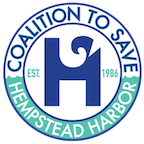Help Ban the Beads! Support the Microbeads-Free Waters Act
Microbeads, the tiny plastic beads used as abrasives in a wide variety of personal-care products are showing up in surface waters from the Great Lakes to Long Island Sound. They are washed down drains and pass through wastewater- treatment plants into our waterways. The beads soak up pollutants and are mistaken as food by marine life. They are passed up the food chain to larger fish, wildlife, and ultimately humans. See results of a study just released by the NY State Attorney General’s Office at http://www.ag.ny.gov/pdfs/2015_Microbeads_Report_FINAL.pdf.
Microbeads are making the problem of plastic pollution worse. The Microbead-Free Waters Act (S. 3932/A. 5896) will solve the problem in New York! The Microbead-Free Waters Act is bipartisan legislation that will ban all plastic microbeads in personal care products in New York. The legislation will phase-out the use of plastic microbeads in a timely manner, and will ensure that manufacturers do not switch to other nonbiodegradable abrasives as a replacement, thereby continuing the cycle of damage to our environment.
CSHH has joined with other environmental organizations to press our legislators to pass the Microbead-Free Waters Act in this legislative session. We need your help. See below and fill out the form to forward letters to your elected officials supporting the Microbead-Free Waters Act.
Support Legislation to Ban Plastic Microbeads
Plastic microbeads are a common ingredient used in over 100 different personal care products on the market today. They are used in facial scrubs, soaps, shampoos, and even toothpastes. Plastic microbeads are harmful and unnecessary, and legislation is needed to ban them in New York.
Plastic microbeads pollute New York’s waterways. Products containing microbeads are designed to be washed down the drain. It is estimated that 19 tons of microbeads enter the wastewater stream in NY annually! Microbeads can enter into streams, rivers, lakes and the ocean through sewage overflows or by passing through sewage treatment plants, which are not designed to remove such tiny particles.
Plastic microbeads threaten wildlife and public health. Once in the water, microbeads can attract and adsorb toxic chemicals. The microbeads are mistaken as food by small fish and aquatic life, and the chemicals are then passed up the food chain to larger fish, wildlife, and ultimately humans.
Plastic microbeads are completely unnecessary. Safer, natural, non-polluting alternatives are on the market—some companies already use natural alternatives such as apricot shells and cocoa beans, instead of plastic microbeads.
“Biodegradable plastics” are not a viable alternative. So called “biodegradable plastics” tend not to actually biodegrade into benign substances, but instead break down into smaller pieces that exacerbate the plastic pollution problem in our waters. It is particularly difficult for plastic to biodegrade in an aquatic environment, because the process requires high heat and light.
Support the Microbead-Free Waters Act (S. 3932/A. 5896)!
The Microbead-Free Waters Act is bipartisan legislation that will ban all plastic microbeads in personal care products in New York. The legislation will phase-out the use of plastic microbeads in a timely manner, and will ensure that manufacturers do not switch to other nonbiodegradable abrasives as a replacement, thereby continuing the cycle of damage to our environment.

